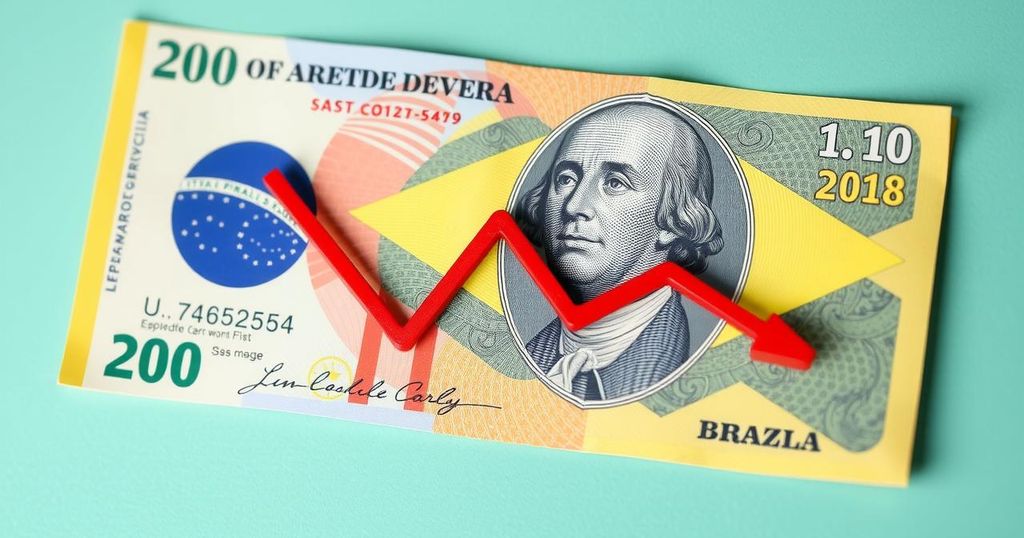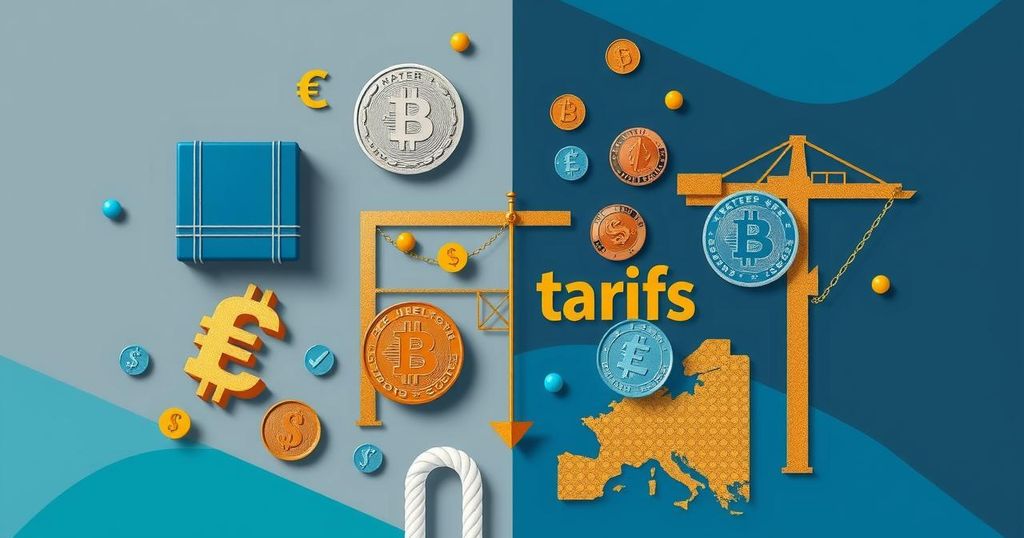Brazil’s Real Declines to All-Time Low Against US Dollar Amid Economic Concerns
Brazil’s real has fallen to a record low of 6.20 to the US dollar due to concerns about government spending and fiscal policy under President Lula. Despite this, Brazil’s economy is projected to grow above 3% this year, with the lowest unemployment in 12 years. Recent interest rate hikes by the central bank aim to combat high inflation, but President Lula opposes these measures due to their impact on credit costs.
On Tuesday, Brazil’s currency, the real, fell to a new record low against the US dollar, driven by ongoing investor concerns regarding the government’s capacity to manage escalating public expenditure. At its lowest point during the trading session, the dollar reached an unprecedented value of 6.20 reais, although it eventually recovered slightly. The real has depreciated by approximately 25% over the course of the year, as the dollar has consistently traded above the significant mark of six reais since late November.
Investor anxiety is largely attributed to the fiscal strategies of President Luiz Inacio Lula da Silva’s administration, especially regarding budget adjustments announced the prior month, which encompassed tax cuts for the middle class and approximately $11 billion in spending reductions. These measures have intensified fears surrounding fiscal discipline. Additionally, Brazil’s central bank recently increased its key interest rate to 12.25%, marking the third consecutive hike aimed at addressing persistent inflation, with indications that further increases may occur in the near future.
Despite the currency challenges, Brazil’s economy is demonstrating robust growth, with projections estimating an expansion exceeding 3% for this year and unemployment rates at their lowest in a decade. “The only thing not going right in this country is that the interest rate is above 12 percent,” stated President Lula in an interview after undergoing emergency surgery. He expressed opposition to high interest rates, which he believes escalate credit costs for both businesses and consumers.
The depreciation of Brazil’s currency, the real, against the dollar has significant implications for the country’s economy. A record low valuation can lead to increased costs for imports, fuel inflation further, and impact the purchasing power of consumers. The persistence of worries related to government fiscal policy and public expenditure management reflects broader anxieties within the financial markets. President Lula’s recent policies, aimed at tax reductions and budget cuts, underscore a complex balancing act between fostering economic growth and ensuring fiscal responsibility.
In summary, Brazil’s real has reached a historic low against the US dollar, primarily due to investor apprehensions regarding government fiscal management and high inflation rates. While the Brazilian economy shows signs of strong growth and declining unemployment, the elevated interest rates present a challenge that the government is grappling with. The situation underscores the delicate interplay between economic policies and market confidence amidst external pressures.
Original Source: www.barrons.com




Post Comment